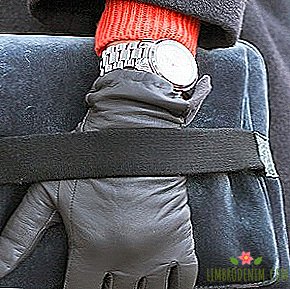Journalist Zalina Marshenkulova about favorite books
IN BACKGROUND "BOOK SHELF" we ask heroines about their literary preferences and editions, which occupy an important place in the bookcase. Today the journalist, the creator of the online publication Breaking Mad, the author of the telegram channel "Female Power" Zalina Marshenkulova, talks about favorite books.

 My aunt taught me to read when I was six years old: I remember that it captured me so much that going to the library became the best entertainment. I jumped up almost at six in the morning and began to read. Parents' houses — we lived in a tiny town on Yamal — there was only a complete work on Angelica on the shelf; I didn't want to read it. In general, I have always been mad at the so-called women's novels, although I still didn’t know that I was a feminist.
My aunt taught me to read when I was six years old: I remember that it captured me so much that going to the library became the best entertainment. I jumped up almost at six in the morning and began to read. Parents' houses — we lived in a tiny town on Yamal — there was only a complete work on Angelica on the shelf; I didn't want to read it. In general, I have always been mad at the so-called women's novels, although I still didn’t know that I was a feminist.
My behavior never corresponded to the "traditional values": I was bold, wayward and very angry, when the teachers said, "You're a girl, be modest." I have always liked infernal philosophical prose, books in which there was an answer to the question of what is wrong with me or with this world. I very early began to understand that the values of a small town with their attitude to the individual - and especially to a woman - are not just alien to me, but cause rabies. I constantly heard the good old "What are you, the smartest? Do you need more than anyone? Where do you climb?" - and wildly angry. Because I really always needed the most: I studied perfectly, everything was interesting for me, I worked on the radio, on TV and in the newspaper, helped public organizations. In general, to sit and wait is the only thing that I simply could not and cannot do. Our society is still sensitive to these girls and girls: ambition is perceived as something abnormal. Therefore, in books, movies, and magazines, I looked for other examples — women like me.
Then I took books on the theory of state and law from a student friend and decided that I would write about politics or practice it. I read the magazine Vlast, watched Svetlana Sorokina on TV and hoped to become like her. I remember that I was greatly impressed in the eighth grade by the legendary book of Elena Tregubova, “Tales of the Kremlin Digger” - I was also hoping to become part of the Kremlin pool too. In our city, nowhere was it possible to buy the magazine "Power" - only a binder in the only city library to look at. In such conditions, it was difficult to remain an advanced and well-read person, but my self-education was enough to enroll in the journalism department of Moscow State University, and then come to work at Kommersant.
I continued to search in the literature role models, women with my character. And I found - in Bunin’s shrill, unbearable story, Pure Monday, the heroine of which seemed to be my reflection: I read and wept bitterly — an exalted strange person who could not find a place for herself. The same was with the heroes of Dostoevsky: Grushenka’s type manipulators were always close to me, but Turgenev’s good girls weren’t. Nastasya Filippovna caused tremendous sympathy, and Tolstoy Natasha Rostova only disgusted and hate. I liked the scandalous, fatal, infernal heroines - destroying themselves and destroying everything around. And I didn’t like "good girls" and generally good characters - moreover, I hated them. I always liked everything dark, mystical, incomprehensible - literature for a lonely man, an outcast and a singer of darkness.

Hermann Hesse
"Steppe Wolf"
When I read the Steppe Wolf at the age of fourteen by Hermann Hesse, I simply exulted, because the mood and philosophy of this work were in tune with my thoughts. I hated the little world with a quiet philistine happiness and orgy of collectivism, one of the main quotes for me just from there:"A person who is able to understand Buddha, who has an idea of the heavens and chasms of mankind, should not live in a world governed by common sense, democracy and philistine education." Then I wrote a devastating article about glazed curd bars and a number of texts exposing the vicious society of materialists.
Leonid Andreev
"Satan's Diary"
I had a lonely difficult childhood: the family collapsed, there was no money, my mother was in the hospital, I had to grow up early, I started earning at fourteen - I worked in a local newspaper. And very early I felt, I apologize for the banality, such all-consuming total loneliness - and this was something more than just teenage troubles. It was not very interesting for me to communicate with my peers, although the relations were excellent with everyone, I adored school, I studied well and on the surface was the soul of the company. The works of Andreev were then (and now) absolutely consonant with my tragic vision of the world. The story “The rules of good”, for example, generally answers all the questions of the universe, that is, it’s rather clear that there are no answers and rules at all, and the rules are invented by stupid humanity simply out of fear.
"Satan's Diary" also corresponded to the moment of self-awareness: I was an excellent student, everyone loved me, but I felt like a tired, lonely Satan, who forgot some devil on earth, understands everything, but is completely lost and doesn't know why he is here. And over the story "Petka at the dacha" I cry sob so far when I reread. In this small and seemingly nothing plot, all the grief of humanity fits.
I still consider Leonid Andreev to be a very undervalued author: he is not given enough time at school and it’s not at all those works. While this is the most Russian writer - the deepest, tragic, infernal, ideally conveying the atmosphere of eternal existential melancholy and restlessness, short duration and impossibility of happiness.
Mikhail Lermontov
"Hero of our time"
Speaking of adolescence, be sure to mention the classic outcast. I almost printed out the passages where Pechorin talks about his character and did not hang it on the wall: it seemed to me that everything was absolutely about me — for example, where he said how he learned to like and manipulate people. In other words, this is the same Satan's Diary: you can do everything, you like everything, you can get what you want, but at the same time you want to die and you do not know why you are living. I think that about each generation of conditional intelligentsia, one may say so - superfluous people. And about mine, and about the new generation of twenty. The form is changing, but not the content. This is something like an eternal damnation too clever.
Fedor Dostoevsky
"Brothers Karamazov"
I read this book as a teenager - the feeling afterwards was as if I had experienced all the grief of the world. It was summer, and I remember how everyone was having fun around, and I went with round eyes. At the university, half of the course in our country was filled up with a literature test due to the fact that they could not tell in their own words what this work was about. The most interesting thing is that you can’t tell short and true, because this book is like the bible of the Russian people - everything at once. This is the search for oneself, and the search for God, and universal loneliness, and existential horror.
If there is any book that can convince of the existence of God, then it is she who: “The Karamazovs” speak best with cynics and atheists. Two main thoughts from there I will never forget. That there is no one more suffering and righteous than an atheist, and the most terrible thing for a person is freedom. And the second thought: "Everyone is to blame for everything". I still think about this quote: it helped me to accept, understand, rethink a lot. This book of Dostoevsky is very useful for misanthropes, it heals from hatred and a sense of self-importance.
Francis Fukuyama
"Our posthuman future"
At university I was very fond of philosophy, I even started dating a guy who taught her. He influenced my education, I discovered a lot, advised books. Roughly speaking, we spent the night with the transcendental philosophy of Kant and listening to Sorokin's Dugout. I was nineteen, all this made a strong impression on me then: Heidegger, Deleuze, Baudrillard. Fukuyama was singled out in this list because I really liked his interpretation of the ghostly world from simulacra and the lack of reality. For newsmen and media workers in general, this is a very useful book.
Vladimir Sorokin
"Norm", "Hearts of four"
Sorokin became an absolute discovery and shock - this is probably the main writer for me. He burns out and corrodes naivety and sentimentality in the texts, if you write them. "Norma" in terms of importance and depth is a book of the level of the "Brothers Karamazov": they are absolutely equivalent. This is also the Bible, according to which Russia still lives and, apparently, will live for a long time. And we will comment on many news and events for a long time with the phrase "Hello, Martin Alekseevich!" I think my caustic twitter was born precisely because of Sorokin - I often wrote there in a similar genre and quickly earned the fame of a monster.
Anatoly Mariengof
"Cynics"
I fell in love with Mariengof when I read about Esenin with him. In particular, the story when they wanted to leave an uninteresting party, but could not figure out how to do it. And then Yesenin got up and said: "Sorry, we will probably go, we have syphilis." When I read "Cynics" after the memories of Esenin, I finally fell in love. This is perhaps the most bitter of all the story of the red and white, about what kind of Russia we have lost and whether we have lost something at all. I also love “Doctor Zhivago” and “Running” very much, but “Cynics” are inexpressibly closer - and in their style they are very different from other Russian books of that time. I think they should be very close and understandable to the current generation of cynics: again, the new cynics are no different from the old ones.
Michael Bulgakov
"Morphine"
In the continuation of the bitter cycle of the country's red-and-white suffering, I will single out “Morphine”. It is absolutely unbearable and conveys the terrible atmosphere of the time in a seemingly banal description of the life of one not very brave and strong person.
Anton Zayniev, Daria Varlamova
"Go crazy. Mental Disability Guide for a big city resident"
Now I read mostly books on psychology and psychiatry. Largely because depression ranks third among the causes of death worldwide, as they say in this book. And I just had a slight bipolar disorder, which has not yet been properly studied - but now I have become much clearer.
Some people write that it has become "fashionable" to hurt, but it is very disappointing to hear it - especially when you are physically dying of emotional exhaustion or depression. Anxiety-depressive disorders - a disease of the apogee of civilization. I call this phenomenon this: "Feet are warm, head is in a loop." The more full you are, the greater the existential hunger. Perhaps in the most robotic and mechanistic future, the most popular professions will be a psychotherapist, a sociologist and a philosopher - professionals who will look for answers to questions why a person should live. The most important thing this book says is that it is normal to have disorders, and the concept of “normal” does not exist at all. Because in some situations, the brain of a healthy person creates for it a softening reality an illusion, and the brain of an unhealthy does not create any illusions, but sees the situation as it is.




